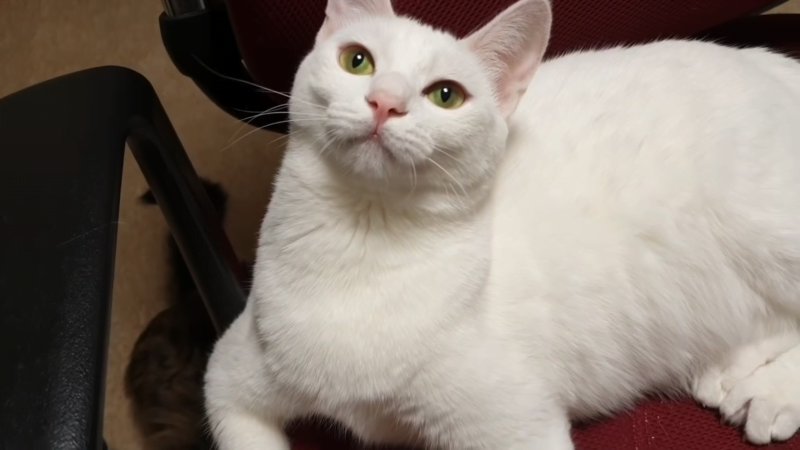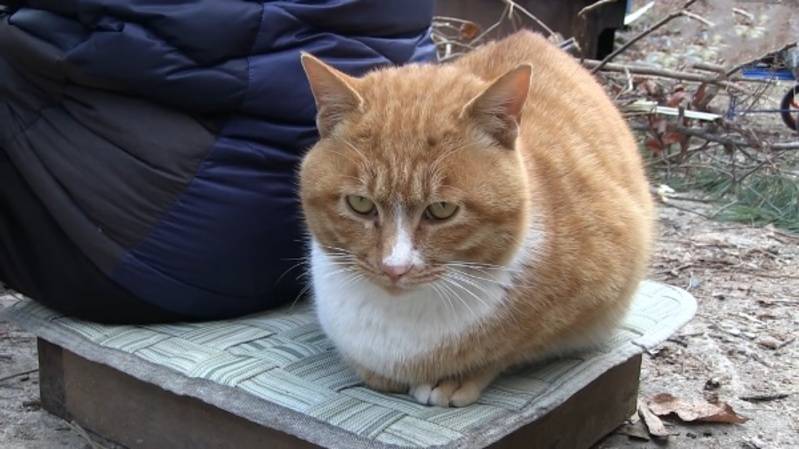No products in the cart.
Caring for a cat with pancreatitis can be challenging, but CBD for pancreatitis in cats offers a natural way to relieve symptoms such as vomiting, abdominal pain, and lethargy. Due to its anti-inflammatory and pain-relieving qualities, CBD may provide answers.
This blog post will discuss the advantages of CBD for pancreatitis-stricken cats and offer insights into how it might enhance your furry friend’s quality of life. Learn how using CBD in your cat’s treatment plan could help them feel better much more quickly.
What is Pancreatitis in Cats?
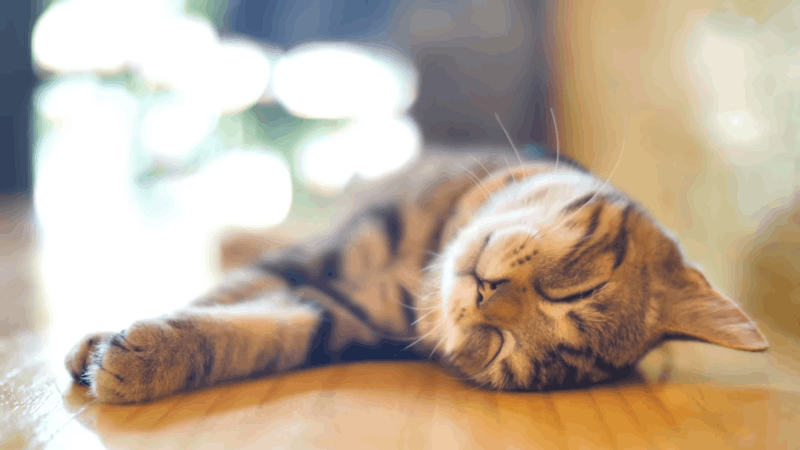
Pancreatitis in cats is a condition where the pancreas becomes inflamed, disrupting its normal functions. To facilitate digestion and maintain blood sugar levels, the pancreas is in charge of manufacturing insulin and digestive enzymes.
Symptoms like nausea, vomiting fits, fatigue, loss of appetite, and weight loss can occur when it becomes inflamed. It may take immediate veterinarian care to properly manage and treat this ailment, which can range in severity from mild to severe.
What Causes Pancreatitis in Cats?
A number of things can cause pancreatitis in cats, which results in inflammation of the pancreas and other health problems.
- Infections: Bacterial, viral, or parasitic infections can lead to inflammation of the pancreas.
- Trauma: Physical injury to the abdomen, such as from a fall or accident, can trigger pancreatitis.
- Certain medications: Some drugs, including certain antibiotics and chemotherapy agents, can cause pancreatitis as a side effect.
- Dietary indiscretion: Consumption of inappropriate foods, such as fatty foods or garbage, can contribute to the development of pancreatitis.
- Obesity: Overweight cats are at higher risk of developing pancreatitis due to increased fat around the pancreas.
- Concurrent diseases: Conditions like diabetes, inflammatory bowel disease (IBD), or liver disease can increase the likelihood of pancreatitis.
- Idiopathic: In many cases, the exact cause of pancreatitis remains unknown, which is referred to as idiopathic pancreatitis.
Management and reduction of the risk of pancreatitis in cats can be achieved by awareness of these potential triggers and the use of preventive measures.
Pancreatitis in Cats Symptoms
Pancreatitis in cats can manifest through a variety of symptoms, which may vary in severity. Here are the detailed signs to watch for:
- Vomiting: Frequent or intermittent vomiting is common and can lead to dehydration if left untreated.
- Abdominal pain: Cats may exhibit signs of abdominal pain by adopting a hunched posture, being reluctant to move, or being sensitive to touch around the abdomen.
- Lethargy: A noticeable decrease in activity levels, with the cat appearing unusually tired or unwilling to engage in normal play or interactions.
- Decreased appetite or anorexia: Loss of interest in food, leading to reduced food intake or complete refusal to eat, which can contribute to weight loss.
- Dehydration: Due to vomiting and decreased water intake, cats may become dehydrated, exhibiting signs like dry gums, sunken eyes, and decreased skin elasticity.
- Diarrhea: Loose or watery stools may occur, often accompanied by a foul odor.
- Weight loss: Gradual or rapid weight loss due to decreased appetite and nutrient absorption issues.
- Behavioral changes: Changes in behavior, such as increased hiding, aggression when touched, or unusual vocalizations indicating discomfort or pain.
Recognizing these symptoms early and seeking veterinary care can help manage and treat pancreatitis effectively in cats. Pancreatitis can be efficiently managed and the prognosis improved with early diagnosis and treatment.
How Long Does Pancreatitis Last in Cats?
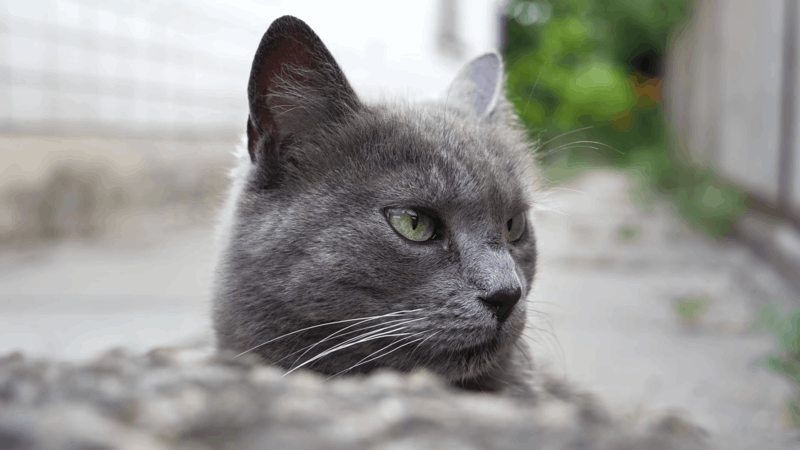
The duration of pancreatitis in cats can vary widely depending on the severity of the condition and the effectiveness of the treatment. Acute pancreatitis may last a few days to a couple of weeks with proper medical intervention, while chronic pancreatitis can persist for months or even become a lifelong condition that requires ongoing management. Reducing the length and improving the prognosis require early diagnosis and prompt treatment.
End Stage Pancreatitis in Cats
End stage pancreatitis in cats refers to a severe, often irreversible stage of the disease where the pancreas has sustained significant damage. At this stage, the cat may show severe symptoms like severe gastrointestinal pain, vomiting all the time, jaundice, and major weight loss. Treatment focuses on palliative care to manage pain and improve the quality of life, as the condition is usually not curable at this stage.
Is Pancreatitis in Cats Contagious?
Pancreatitis in cats is not contagious and cannot be transmitted from one cat to another or to other animals. This is a non-communicable disease that is usually brought on by trauma, infections, certain drugs, poor eating habits, obesity, or coexisting illnesses. Each case of pancreatitis is unique to the individual cat and is not related to infectious agents that can spread between animals.
Home Care and Additional Treatments for Pancreatitis in Cats
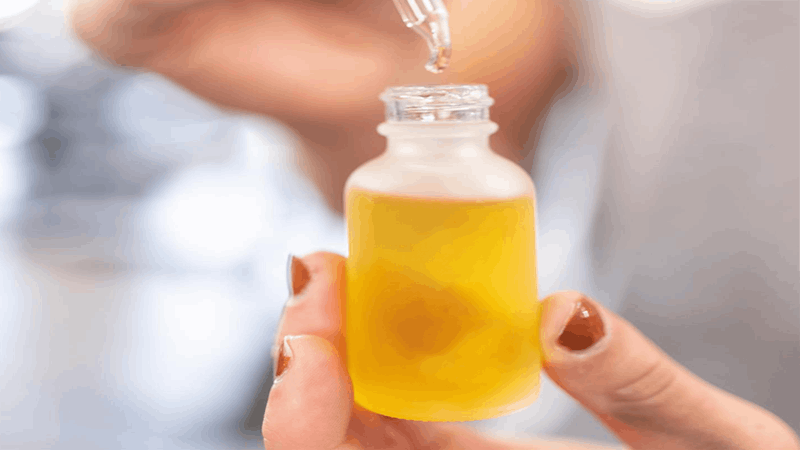
Home care for cats with pancreatitis involves closely following veterinary advice, providing a calm and stress-free environment, ensuring adequate hydration, and administering prescribed medications. Additionally, nutritional support through a specially formulated diet can aid in recovery. In case the cat’s condition worsens, it is crucial to keep an eye on its symptoms and promptly seek veterinarian assistance.
How to Treat Pancreatitis in Cats at Home?
It is crucial to adhere to a thorough care plan that takes into account hydration, diet, medication, environment, feeding procedures, and symptom monitoring in order to manage pancreatitis in cats at home.
- Ensure hydration: Provide fresh water or electrolyte solutions regularly, and monitor the cat’s water intake to prevent dehydration.
- Vet-recommended diet: Use a diet that is low in fat and easy to digest, and consider prescription diets specifically formulated for pancreatic health.
- Administer medications: Follow the vet’s instructions for pain relievers and anti-nausea drugs, and ensure consistent administration of medications as prescribed.
- Stress-free environment: Create a calm and quiet space for the cat to recover, and minimize loud noises and other stressors in the home.
- Small, frequent meals: Offer smaller portions of food multiple times a day to prevent overloading the digestive system and manage symptoms.
- Monitor symptoms: Keep a close eye on the cat’s condition and symptom changes, and contact the vet if there are signs of worsening or new symptoms.
Through meticulous execution of these measures and regular correspondence with your veterinarian, you can expedite your cat’s recuperation and optimize pancreatitis management.
CBD for Pancreatitis in Cats: How can It Help?
Due to its anti-inflammatory and analgesic properties, CBD can aid cats with pancreatitis by lowering the pain and inflammation brought on by the illness. CBD may also enhance appetite and lessen nausea, resulting in greater overall health and recovery. However, it is crucial to consult a veterinarian before using CBD to ensure it is safe and appropriate for your cat’s specific condition.
Food for Pancreatitis in Cats
Managing pancreatitis in cats and promoting their recuperation require careful food selection.
- Low-fat diets: Opt for foods that are specifically low in fat to reduce the strain on the pancreas.
- Easily digestible foods: Choose foods that are easy to digest, such as those with simple ingredients and minimal additives.
- High-protein options: Ensure the diet includes high-quality proteins to support overall health and recovery.
- Prescription diets: Use prescription diets formulated for pancreatic health, as recommended by your veterinarian.
- Small, frequent meals: Offer smaller, more frequent meals to avoid overloading the digestive system and help manage symptoms.
- Hydration support: Include moist foods or add water to dry food to help keep the cat hydrated.
Your cat’s recovery and improved management of pancreatitis symptoms can both be greatly aided by choosing the right foods and feeding techniques.
Pancreatitis in Cats Recovery Time
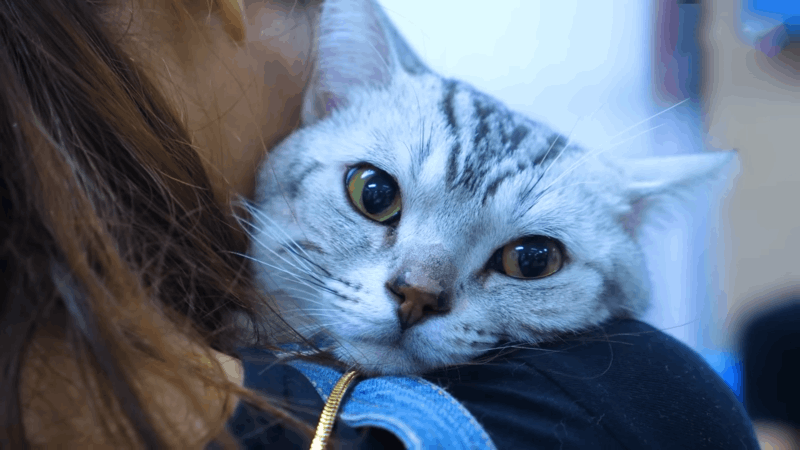
The recovery time for pancreatitis in cats can vary significantly based on the severity of the condition and the effectiveness of the treatment plan. Acute pancreatitis may resolve within a few days to a couple of weeks with prompt and appropriate veterinary care, including medications and dietary changes.
Chronic pancreatitis, however, can persist for months or become a lifelong condition requiring ongoing management and regular veterinary check-ups. Enhancing the chances of recovery and guaranteeing the cat’s long-term health require early action and regular observation.
Conclusion
CBD for pancreatitis in cats is a viable and all-natural way to treat this difficult ailment. Thanks to its anti-inflammatory and analgesic properties, CBD can assist your cat’s pancreatitis symptoms and overall quality of life. If your feline friend is suffering from pancreatitis, consider incorporating CBD into their care routine after consulting with your veterinarian.
Hello, I am Hazel Bennett, an experienced copywriter specializing in the fascinating topic of CBD for dogs. With a passion for pet wellness and extensive knowledge of CBD’s potential benefits, I am here to provide you with informative and engaging content.


